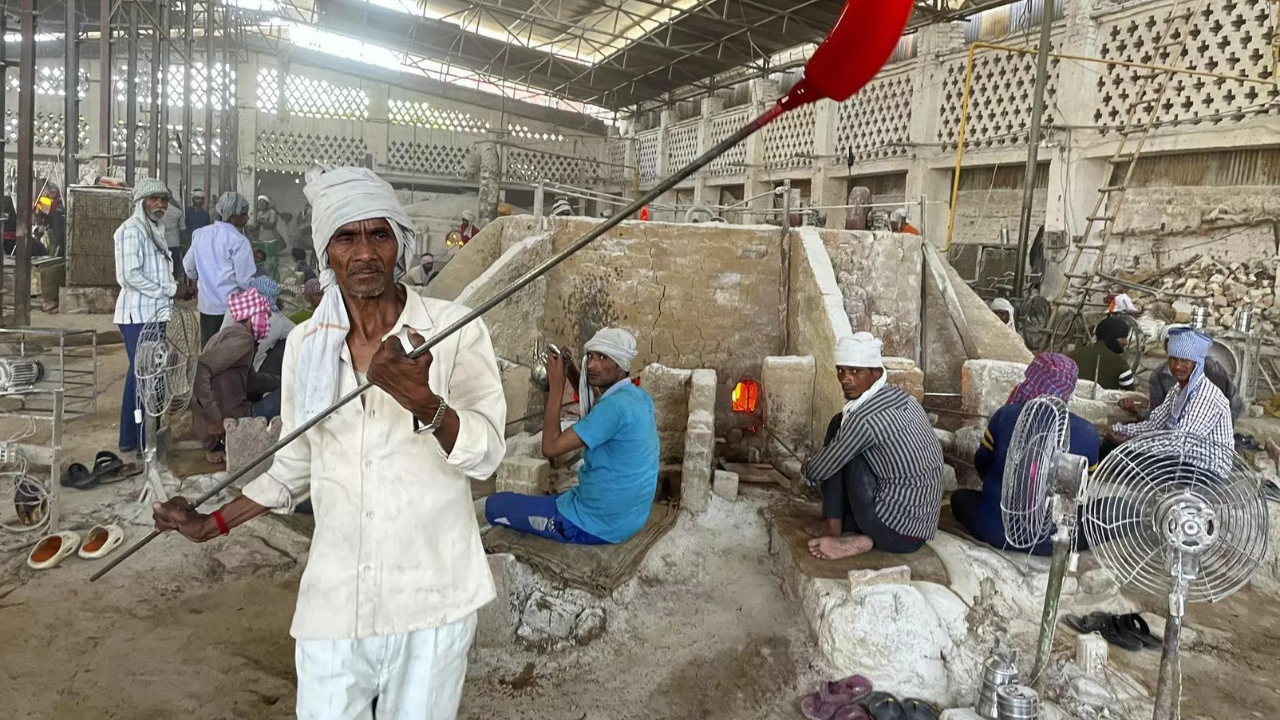The Harsh Realities of Climate Change on Glass Bangles Industry in Firozabad
When you think of glass bangles, you may picture them shimmering delicately on a woman’s wrist or sparkling in a shop window. But have you ever stopped to consider the impact of climate change on the artisans who craft these beautiful pieces?
Located in the heart of India’s glass industry, Firozabad is known as the ‘City of Glass’, where generations of artisans have honed their skills in the art of making glass bangles. However, what was once a challenging but manageable profession has now become a battle against rising temperatures and extreme heat.
With the mercury soaring, the combination of furnace heat and climate change has taken a toll on the health of the workers. The Rs 1,000 crore industry, which employs over five lakh people, is facing an uncertain future as the effects of climate change become increasingly severe.
The process of crafting glass bangles is meticulous and demanding. From melting glass to shaping it around a mandrel, every step requires precision and skill. However, the scorching heat inside the bangle factories, where temperatures can exceed 50 degrees Celsius, has made the work unbearable for many.
Workers like Aastha Dev, who has been hospitalised multiple times due to dehydration and heat-related illnesses, are facing a grim reality. “It’s like working in an inferno,” she says, reflecting the sentiments of many of her colleagues.
Despite the challenging conditions, these artisans have no choice but to continue working to make ends meet. The lack of proper ventilation and cooling systems in the small-scale bangle factories only exacerbates the situation, leading to cases of heat exhaustion, dehydration, and other health issues.
Women, who make up a significant portion of the workforce, often bear the brunt of the harsh conditions. Tasked with intricate tasks like designing and painting bangles at specific temperatures, they struggle to cope with the intense heat.
As global temperatures continue to rise, the impact of climate change on industries like Firozabad’s glass industry is becoming more evident. The World Weather Attribution group has linked the extreme heat in the region to climate change and the El Nino phenomenon.
Health experts have raised concerns about the long-term implications for the workers, warning of chronic health conditions like cardiovascular disease as a result of prolonged exposure to extreme temperatures.
While some factory owners acknowledge the challenges faced by the workers, economic pressures limit their ability to implement substantial changes. Basic cooling solutions like fans and improved hydration facilities are being introduced, but more support from the government and industry stakeholders is needed to safeguard the health and livelihoods of these workers.
As the world grapples with the effects of climate change, it is essential to recognize the human cost behind the production of everyday items like glass bangles. The artisans of Firozabad are not just facing a heatwave; they are experiencing the harsh realities of a changing climate that threaten their livelihoods and well-being.









